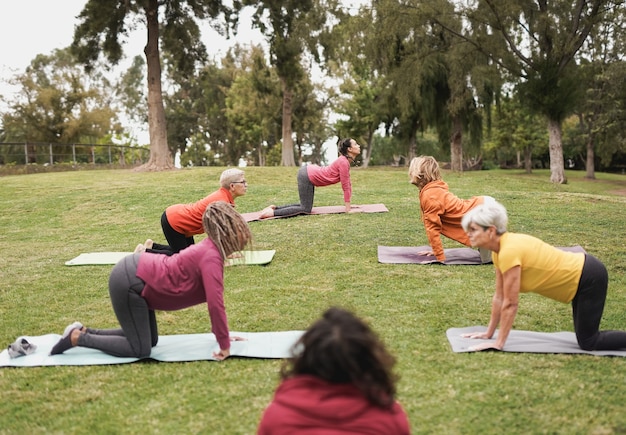The Benefits of Social Engagement for Mental Health in Seniors

Social engagement offers numerous benefits for the mental health of older adults, including reduced feelings of loneliness, enhanced cognitive function, and improved overall well-being.
As we age, maintaining good mental health is crucial for a fulfilling life. The benefits of social engagement for mental health in older adults are profound, offering a pathway to combat loneliness and enhance overall well-being. Let’s explore how staying connected can transform lives.
Understanding Social Engagement and Its Importance
Social engagement refers to participating in activities and interactions that connect us with others. For older adults, this can range from volunteering and joining clubs to simply spending time with family and friends. It’s about fostering a sense of belonging and purpose.
Combating Loneliness and Isolation
Loneliness is a significant issue among older adults, often leading to depression and other mental health problems. Social engagement provides opportunities for connection, helping to alleviate these feelings and create a sense of community.
By staying active and involved, seniors can build meaningful relationships that provide emotional support and companionship, essential ingredients for mental well-being.
- Participating in group activities like book clubs or walking groups.
- Volunteering at local organizations or shelters.
- Attending community events and workshops.
- Using technology to stay connected with distant family and friends.
These activities offer regular interaction and the chance to form bonds, making a real difference in overcoming isolation.
In summary, social engagement helps combat loneliness and isolation among older adults by providing opportunities for connection, emotional support, and building meaningful relationships.
The Cognitive Benefits of Staying Socially Active
Engaging with others isn’t just good for emotional well-being; it also has substantial cognitive benefits. Studies show that staying socially active can help maintain and even improve cognitive function as we age.

Enhancing Memory and Cognitive Function
Social interaction stimulates the brain, promoting cognitive reserve and protecting against age-related decline. Engaging in conversations, learning new skills, and participating in mentally stimulating activities can all contribute to better brain health.
When seniors stay socially active, they’re more likely to keep their minds sharp, improving memory and cognitive function over time.
- Joining a book club or discussion group.
- Taking classes at a local community college or senior center.
- Playing brain-training games or puzzles with friends.
- Participating in group activities that require problem-solving.
These activities help exercise the brain and keep cognitive skills in top shape.
In conclusion, social engagement enhances memory and cognitive function by stimulating the brain and promoting cognitive reserve in older adults.
Improving Emotional Well-being Through Social Connections
Beyond cognitive health, social connections play a vital role in improving emotional well-being. Meaningful relationships provide a sense of purpose, boost self-esteem, and offer support during challenging times.
Boosting Self-Esteem and Confidence
Feeling valued and appreciated is crucial for maintaining a positive self-image. Social engagement provides opportunities for seniors to share their experiences, offer advice, and contribute to their communities, boosting their self-esteem and confidence.
When older adults feel useful and connected, it can significantly improve their overall emotional well-being.
- Volunteering in roles that utilize their skills and expertise.
- Mentoring younger individuals or peers.
- Participating in activities where their contributions are valued.
- Sharing their life stories and experiences with others.
These avenues offer a chance to make a difference and reinforce their sense of worth.
To summarize, social engagement boosts self-esteem and confidence by providing opportunities for older adults to feel valued, useful, and connected within their communities.
The Physical Health Benefits Linked to Social Activity
The benefits of social engagement extend beyond mental and emotional well-being; it also has a positive impact on physical health. Studies have found that socially active seniors tend to be healthier and live longer.

Promoting a Healthier Lifestyle
Social activities often involve physical movement, whether it’s walking with friends, participating in group exercises, or gardening together. These activities promote a healthier lifestyle and reduce the risk of chronic diseases.
Staying socially engaged encourages seniors to be more active, leading to improved physical health and longevity.
- Joining a walking or hiking group.
- Participating in group fitness classes designed for seniors.
- Engaging in community gardening projects.
- Attending social dances or recreational sports events.
These activities make staying active enjoyable and sustainable.
In conclusion, social engagement promotes a healthier lifestyle by encouraging older adults to be more physically active, reducing the risk of chronic diseases and improving overall well-being.
Overcoming Barriers to Social Engagement
While the benefits of social engagement are clear, many older adults face barriers that prevent them from staying connected. These barriers can include physical limitations, transportation issues, and feelings of social anxiety.
Practical Tips for Staying Connected
Addressing these barriers requires a combination of practical solutions and emotional support. Offering accessible transportation, creating inclusive programs, and encouraging participation can help seniors overcome these challenges.
By addressing these barriers proactively, communities can make it easier for older adults to stay socially engaged and enjoy the many benefits it offers.
- Providing transportation services to social events and activities.
- Offering programs that accommodate different physical abilities.
- Creating welcoming and inclusive environments for all participants.
- Encouraging family members and friends to support social engagement.
These strategies can make a significant difference in overcoming barriers.
In summary, overcoming barriers to social engagement involves practical solutions like accessible transportation and inclusive programs, along with emotional support to encourage participation among older adults.
The Role of Technology in Facilitating Social Connections
In today’s digital age, technology plays an increasingly important role in facilitating social connections for older adults. From video calls to social media, technology offers new ways to stay connected with family, friends, and communities.
Utilizing Digital Tools for Social Interaction
Learning how to use digital tools can open up a world of social opportunities for seniors. Online communities, virtual events, and video conferencing make it easier than ever to stay connected, regardless of physical distance or mobility limitations.
Embracing technology can help older adults maintain and even expand their social networks, enhancing their overall well-being.
- Learning how to use video conferencing platforms like Zoom or Skype.
- Joining online communities and forums related to their interests.
- Participating in virtual events and workshops.
- Using social media to stay connected with family and friends.
These digital tools offer accessible ways to foster social interaction.
In conclusion, technology facilitates social connections for older adults by providing digital tools for online communities, virtual events, and video conferencing, helping them maintain and expand their social networks.
Community Programs and Initiatives Supporting Senior Social Engagement
Many communities recognize the importance of social engagement for older adults and offer programs and initiatives to support it. These programs range from senior centers to volunteer opportunities and community events.
Finding Local Resources and Opportunities
Identifying and utilizing these local resources can make a significant difference in promoting social engagement. Senior centers offer a wide range of activities, while volunteer organizations provide opportunities to contribute to the community and connect with others.
By taking advantage of these opportunities, seniors can stay socially active and enjoy the many benefits it offers.
- Visiting local senior centers to participate in activities and events.
- Volunteering at community organizations or shelters.
- Attending local workshops and seminars.
- Participating in community events and festivals.
These resources offer accessible avenues for social engagement.
In summary, communities support senior social engagement through programs like senior centers, volunteer opportunities, and community events, providing local resources and opportunities for older adults to stay active and connected.
| Key Point | Brief Description |
|---|---|
| 😊 Reduce Loneliness | Social interaction helps prevent feelings of isolation in older adults. |
| 🧠 Cognitive Boost | Stay active to enhance memory and cognitive functions. |
| 💪 Physical Health | Social engagement encourages a more active and healthier lifestyle. |
| 📱 Tech Connection | Use digital tools to maintain and expand social networks. |
Social Engagement and Mental Health in Older Adults
▼
Social interaction reduces feelings of loneliness, enhances cognitive function, promotes physical activity, and improves overall mental and emotional well-being.
▼
Technology provides platforms for video calls, online communities, and virtual events, making it easier for seniors to connect with family, friends, and participate in social activities remotely.
▼
Activities like volunteering, joining clubs, participating in group exercises, attending community events, and engaging in hobbies with others are highly beneficial.
▼
Communities can offer accessible transportation, inclusive programs, senior centers, volunteer opportunities, and create welcoming environments to encourage participation.
▼
Barriers include physical limitations, transportation issues, feelings of social anxiety, lack of access to information, and digital literacy challenges.
Conclusion
In conclusion, the benefits of social engagement for mental health in older adults are significant and wide-ranging. By staying connected, seniors can improve their cognitive function, emotional well-being, and physical health. Communities and families have a vital role to play in supporting these connections, ensuring that older adults have the resources and opportunities they need to thrive.
